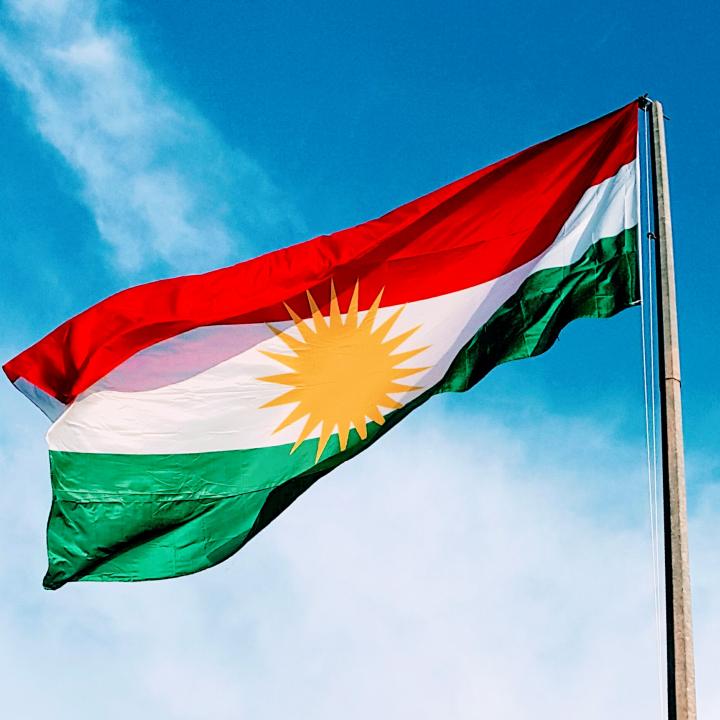
- Policy Analysis
- Fikra Forum
A House Divided: Can Kurdistan Preserve Its Autonomy?

The KRG’s autonomy hangs in the balance, caught in a pincer movement between internal political discord and a history of externally imposed limitations. The recent court rulings are merely the latest blow, further restricting the KRG’s ability to govern itself.
The autonomy of the KRI (Kurdistan Region of Iraq) is at a critical juncture, underscored by two key Iraqi Federal Supreme Court rulings in February that mark a significant shift in fiscal tensions between the Kurdistan Regional Government (KRG) and the federal government in Baghdad.
In the first ruling, the court mandated the KRG to hand over responsibility for paying public servant’s salaries, previously managed by Erbil, to the federal government. The funds will be deducted from the KRG’s budget allocation, thereby tightening Baghdad’s control over regional finances and reducing the KRG’s fiscal autonomy.
The court also required the KRG to submit monthly reports to Baghdad detailing not only salary disbursements but also all revenue streams, including oil and non-oil sources. This enhanced transparency aims to address Baghdad’s concerns about the KRG’s financial management, but also diminishes the KRG’s authority in managing its own finances and meddles in the region’s affairs.
These rulings come as the latest in a series of developments reshaping the relationship between Erbil and Baghdad since the 2017 Kurdish independence referendum signaled a turning point for KRG autonomy. Since this failed bid at complete independence from Baghdad, there has been a gradual but consistent erosion of self-governance in the KRI. This is attributable, in part, to a series of contested rulings by the Iraqi Federal Court, of which the February rulings are only the latest. These rulings, perceived by many in the KRG as politically motivated, have chipped away at the KRG’s authority in key areas.
However, these latest rulings cut to the heart of the KRG’s autonomy. Distribution of civil servant salaries in the KRG is not a mere financial transaction. While local governments in other parts of the world typically manage civil servant salaries in autonomous regions, since this signifies control over a vital aspect of governance, the recent Iraqi Federal Court ruling mandating that Baghdad-controlled banks handle these payments directly undermines the KRG’s autonomy. The public outcry over this shift may be less pronounced than it was a decade ago — a period marked by greater stability — but there are widespread concerns about the new system. On the other hand, the somewhat muted response is partly attributable to the perception that the KRG’s ruling parties have failed to establish a consistent and reliable salary payment system. In addition, the prospect of Baghdad delaying or interfering with salary payments has limited impact on Kurds, as the public has faced austerity measures and delays in payment of salaries for years.
The Iraqi Federal Court's other ruling, also prompted by a lawsuit from the Patriotic Union of Kurdistan (PUK), proved to be a watershed moment as well. Going beyond the initial focus of the lawsuit, the court deemed minority quotas in the KRG parliament unconstitutional and abolished them. This restructuring into four homogeneous constituencies significantly alters the region's political landscape. The ruling is particularly significant with parliamentary elections scheduled for June 10, and it could have devastating consequences for the Kurdistan Democratic Party (KDP) as they have, for years, managed to secure quota seats in their favor. This decision throws the dominance of the 77-year-old KDP within parliament into jeopardy.
However, the main driver of the continued decline in Kurdish autonomy is not only the result of federal involvement; it is also due to the longstanding lack of cohesion and communication between the PUK and the KDP. These two dominant parties effectively control the KRG’s revenue streams and military forces. When they fail to find common ground, the repercussions are severe. A prime example is the repeated postponement of the parliamentary elections originally slated for October 1, 2022. The ongoing political discord between the KDP and PUK prevents a unified approach to governance, hindering progress on crucial issues and ultimately weakening the Kurdish position in negotiations with the Iraqi federal government.
We have seen instances where the PUK and KDP cooperate. In these instances, they serve the greater public good and are able to triumph over adversity. For example, when the Islamic State (ISIS) group emerged in Iraq, both parties put aside their differences and worked strategically and collaboratively, including in terms of intelligence sharing, to ensure the safety of the people within the Kurdistan Region.
A sustainable future for Kurdish self-determination demands a two-pronged approach: resolving internal political divisions and proactively challenging unfair federal restrictions. Despite the commendable efforts of local diplomatic missions to facilitate KDP-PUK dialogue, lasting progress hinges on genuine good faith and compromise from both parties. The emergence of new parties seeking to push Kurdish politics out of a two party system offers a glimmer of hope, but the KDP and PUK seem likely to maintain a strong grip on power for the foreseeable future. This dynamic relegates other parties to a position of limited influence, regardless of any electoral gains.
The KRG desperately needs elections to regain legitimacy on both domestic and international fronts. Without a public mandate, its authority weakens. Further delays would shatter any illusion of a functioning parliamentary system. The recent KDP boycott of parliamentary elections, following the federal court's ruling to dissolve the 11 minority quota seats, only hinders the KRG's path to acquiring the much needed political mandate.
The KDP and PUK face a stark choice: resume their self-serving squabbles and drawing Baghdad deeper into Kurdish politics as a result, or prioritize the people of Kurdistan. The region’s citizens deserve solutions to pressing issues: timely salaries, reduced inequality, sustainable agricultural policies, economic growth, and education. The time for political maneuvering is over, because any further loss of the KRG’s authority would simply bring an end to its autonomous status.

